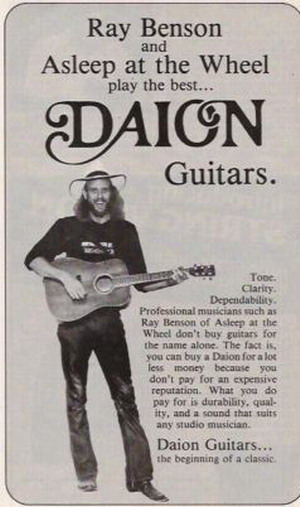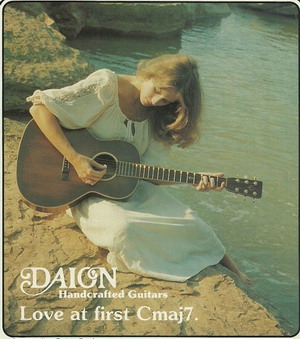

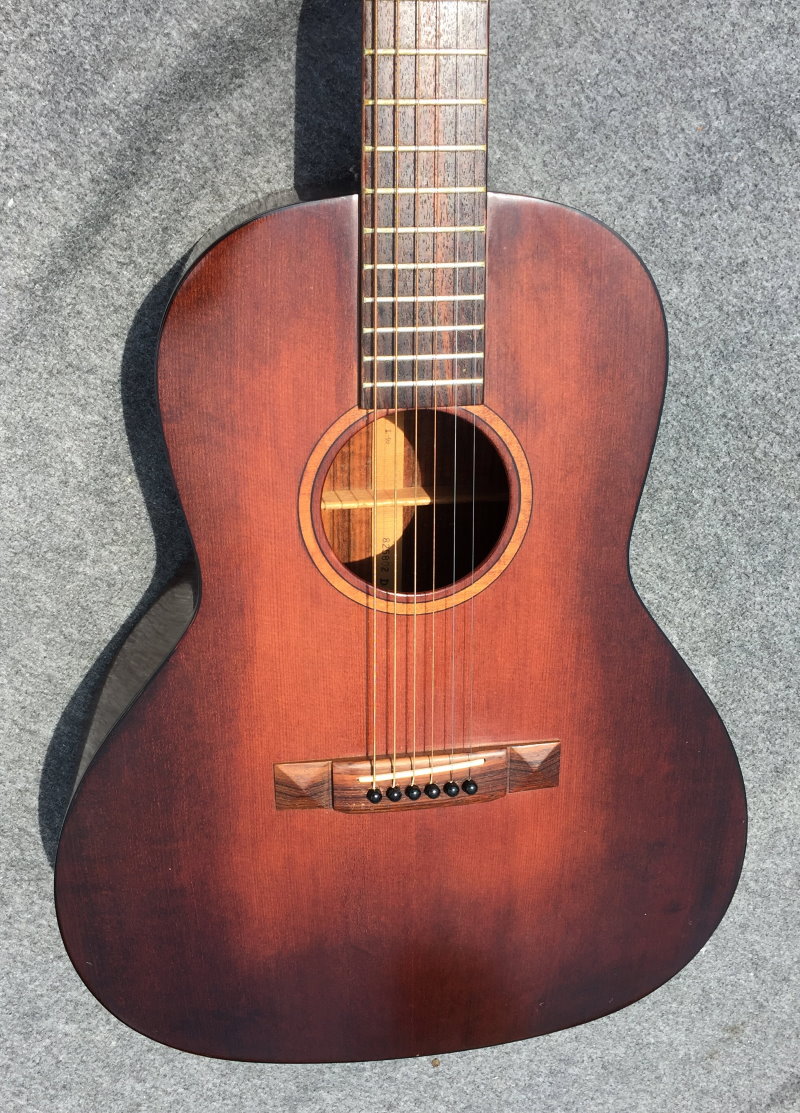

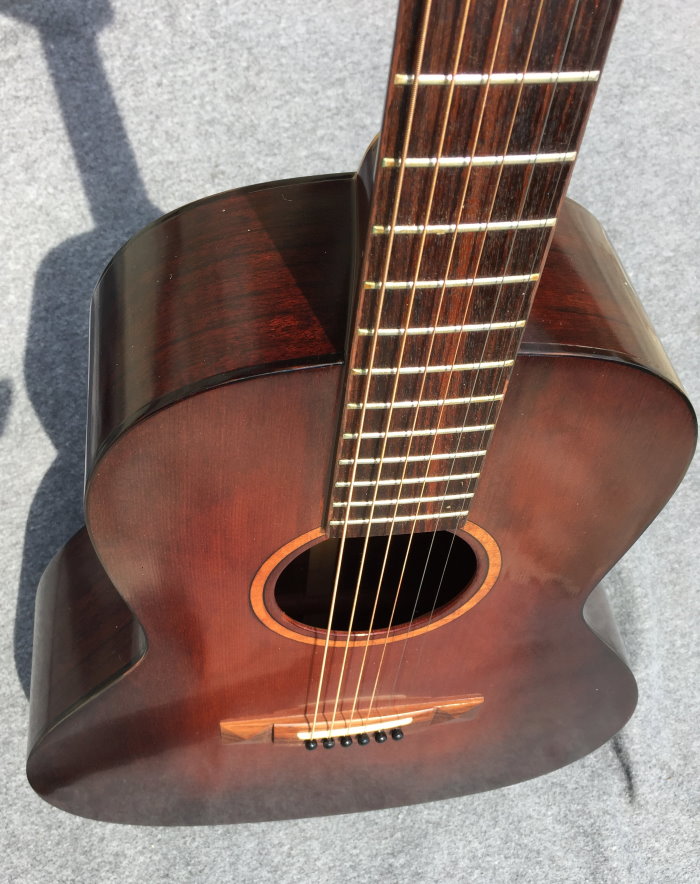
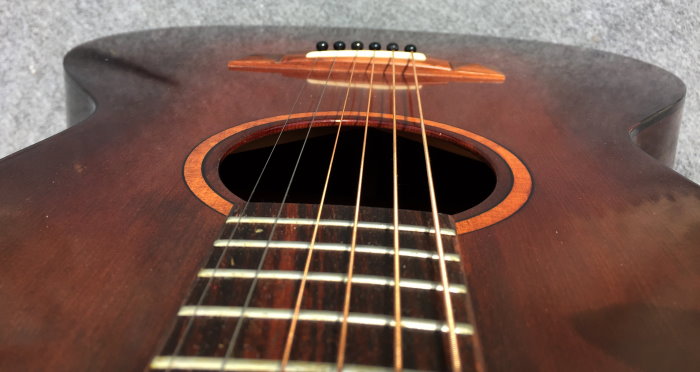
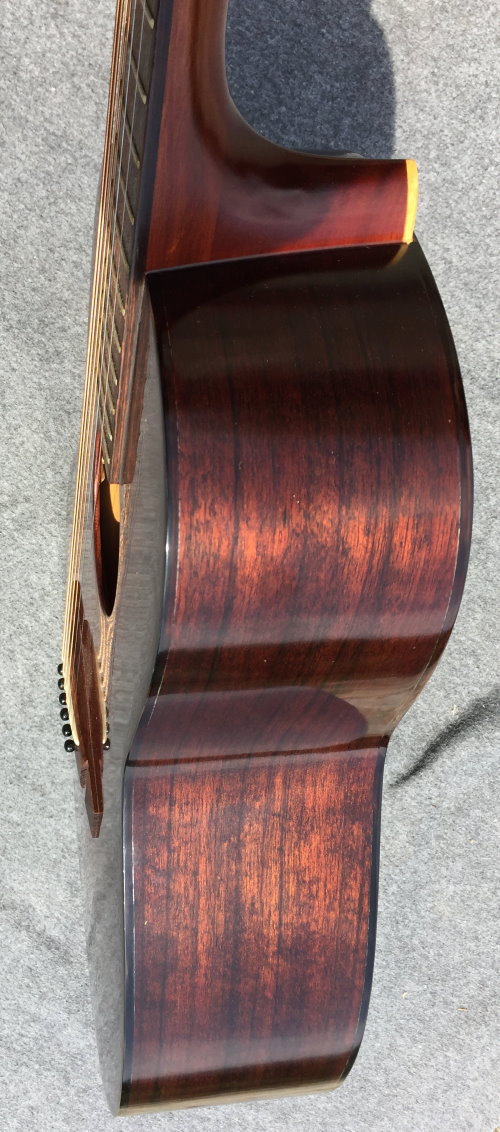
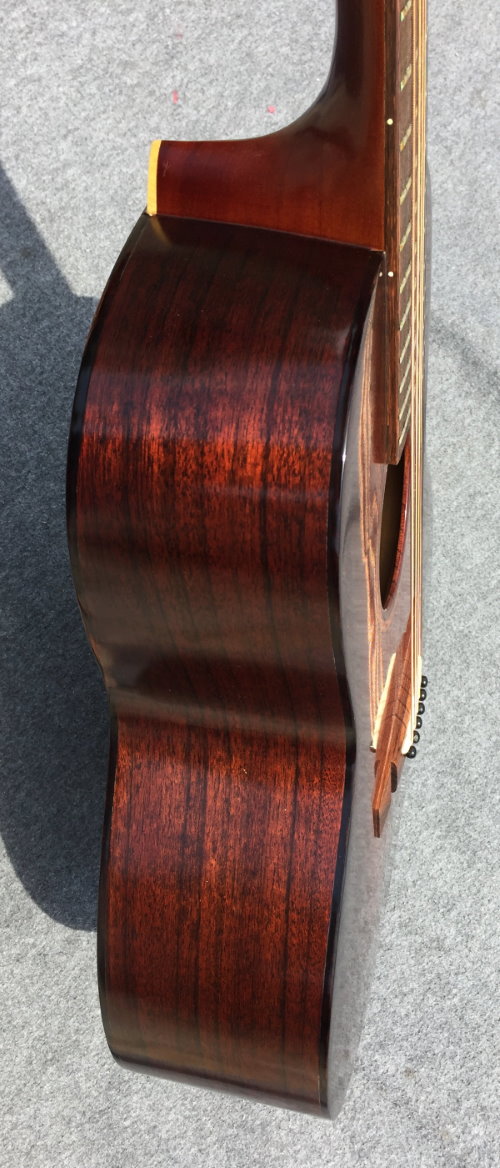
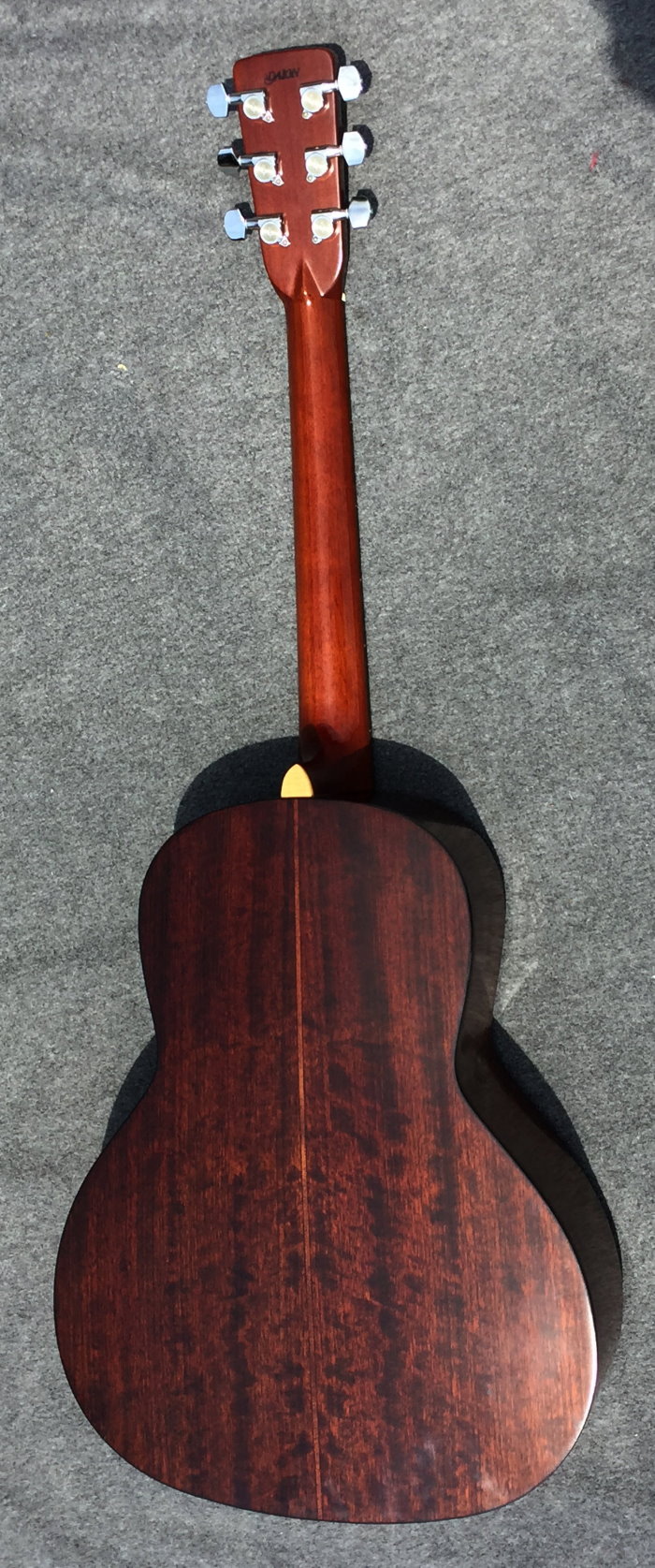


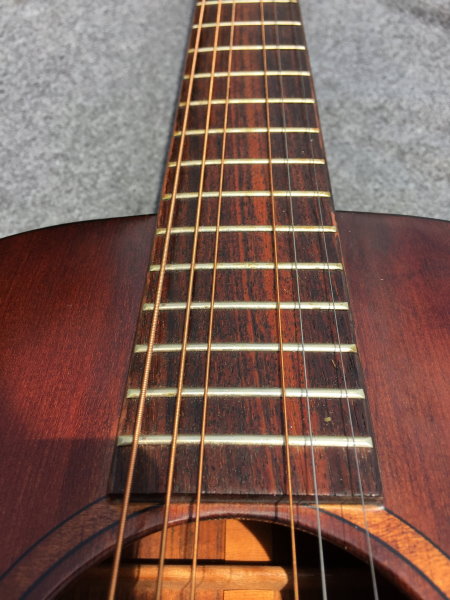
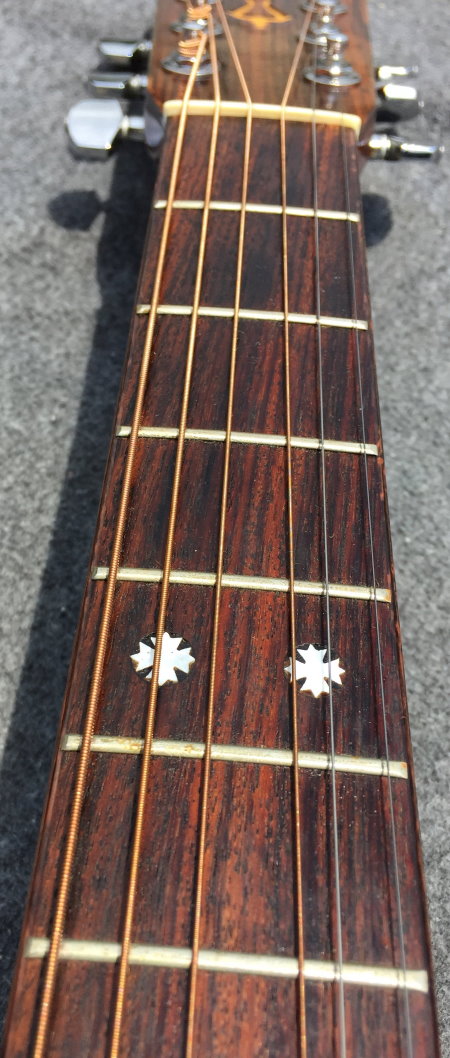
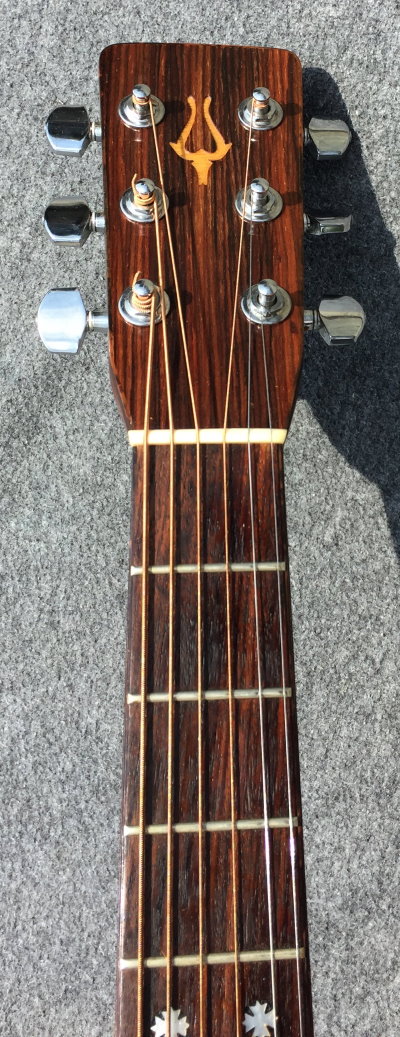
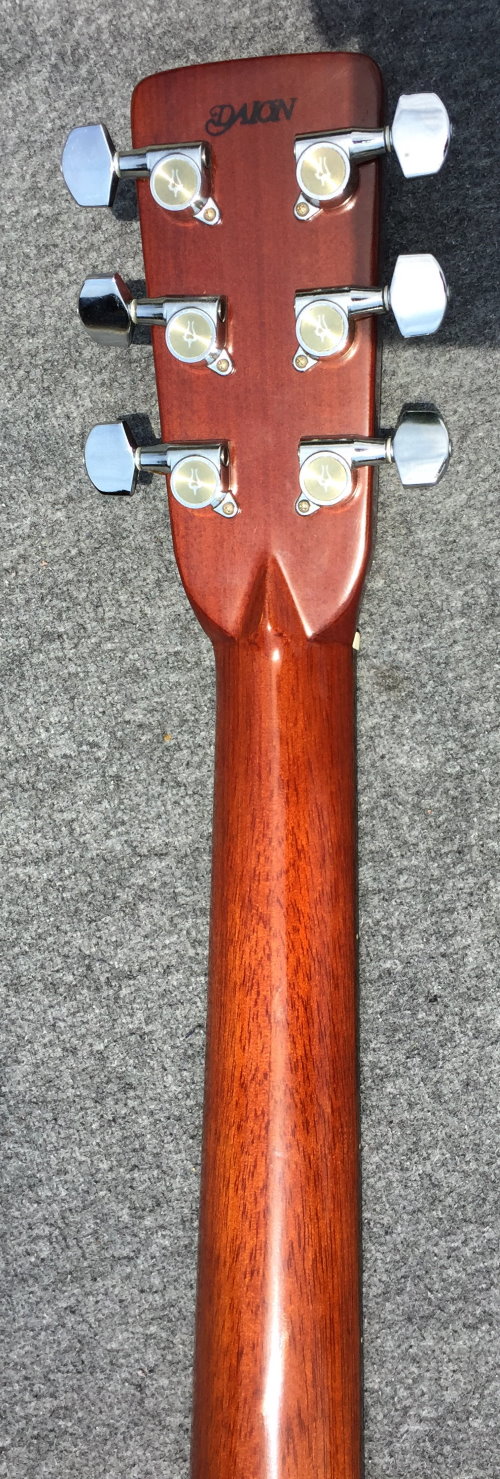
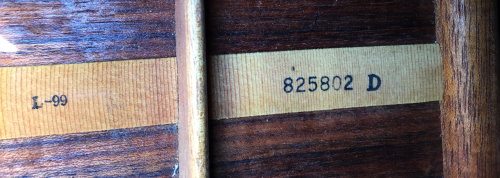
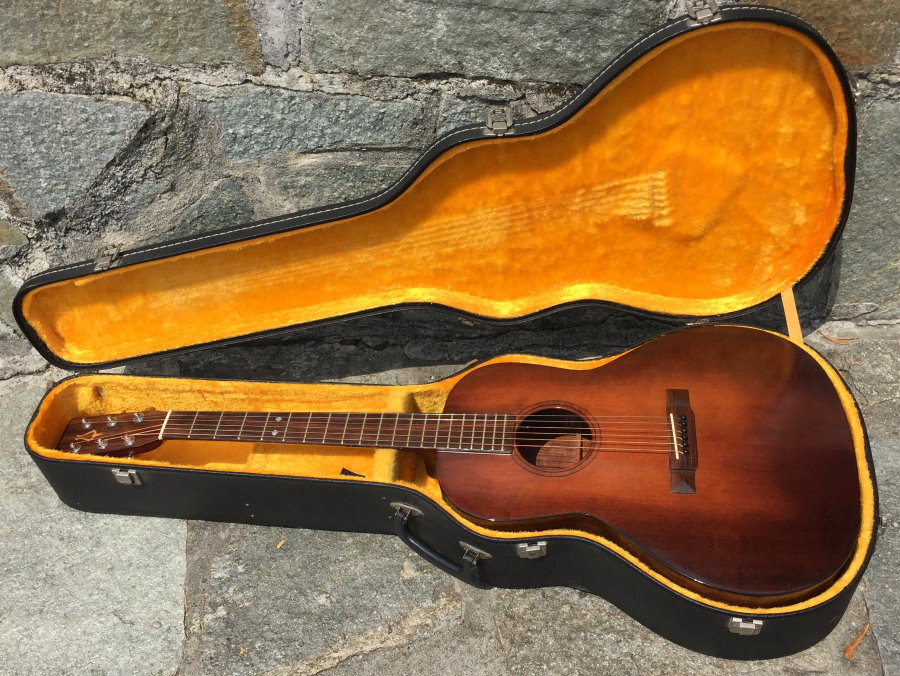
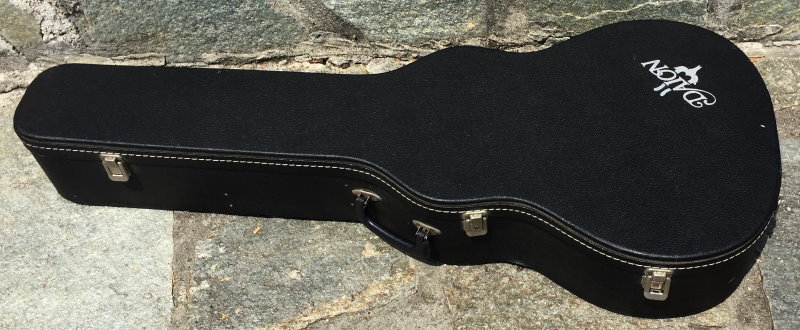
80's DAION LEGACY L-99 6 Strings Low action Super! Near mint Cond. OHC Code AC46
Daion L-99 made in Japan in the Yamaki factory with the original hard case.The guitar is set up to play great nice fingerboard and it sounds big, excellent for fingerpicking and flatpicking. Features include a solid cedar top, Gotoh tuning gears, bone nut and saddle, rosewood bridge and fingerboard, double snowflake inlays on fret five, small position markers on the bass side of the neck, wood rosette, and the engraved Daion "tuning gear" headstock logo.The neck joins the body at the 14th fret and it has a 25 3/8" scale length. The upper bout is 9 3/4", the lower bout is 15 1/2" and the width tapers from 4" to 4 1/2". The overall length is 40".
The
complex history of Yamaki guitars is entwined with the stories of a number
of other Japanese music companies.
In the late 1940s, brothers Yasuyuki and Kazuyuki Teradaira went to work for
Tatsuno Mokko, an instrument manufacturer that later split into two different
firms, one of which was called Hayashi Gakki. In 1954 Hayashi Gakki was
bought out by Zenon, a large music distributor.In 1962 Yasuyuki left Zenon, and
started an instrument distributorship he called Daion, which means “big sound”
or “enlightened” in Japanese. In 1967 Kazuyuki left Zenon to produce classical
guitars under the name Yamaki, an auspicious Japanese word meaning “happy trees
on the mountain.” By the early1970s,Kazuyuki expanded the Yamaki line to include
a large number of steel-string guitars, many of which were clearly based upon
C.F. Martin and Co.’s designs and these were distributed exclusively through
Daion. Along with Yamaki guitars, Daion distributed instruments from Chaki,
Hamox, Mitsura Shinano, Terada, and Tamura (several of these were built by
Yamaki at various times),and Harptone guitars --which Daion imported from the
US. Many guitars were built to specifications of small U.S. distributors, and
carried different labels including Joodee, G.J. Gould & Sons, and others.These
guitars usually bore the same model numbers as their Yamaki counterparts.
Sometime in the late 1960s, Daion began exporting Yamaki guitars to America,
where they were well received. By the late 1970’s, however, Daion felt that the
Yamaki Martin-style guitars were getting lost among similar instruments from
other Japanese builders like Takamine, Yasuma, and C.F.Mountain, so they
re-designed their entire acoustic line. They dropped the Yamaki name and
re-branded their instruments as Daion guitars. In 1978, Tom Burr and staff from
MCI I (whocompany was the North American distributor for Daion guitars), joined
forces with guitar designer Hirotsugu Teradaira of Daion, and provided
innovative ideas for much of the new Daion line of instruments, particularly the
acoustic-electrics and solid-body electrics. Daion began an extensive
advertising campaign to introduce the new line around 1980, but this was a time
when musicians were more interested in the new MIDI-equipped synthesizers than
in guitars. In 1984 Daion stopped exporting guitars to America and went out of
business shortly after MCI Inc. filed for bankruptcy in the USA.
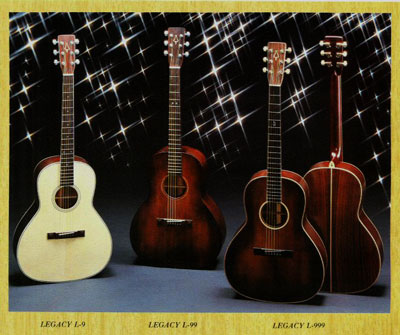
De Legacy Serie omvat drie modellen, de L9, L99 en L999, waarvan de eerste een headstock van sparrenhout heeft, terwijl de duurdere twee een stevige cederhouten headstock hebben, gekleurd met een donkere afwerking. De Legacy-serie zijn zogenaamde "parlor" gitaren, alle drie de modellen hebben een unieke kast die aan de bovenkant smaller is dan de standaard akoestische gitaar en die heldere hoge tonen en dreunende lage tonen produceren. Hiermee geven ze deze gitaren een bijzondere uitstraling
